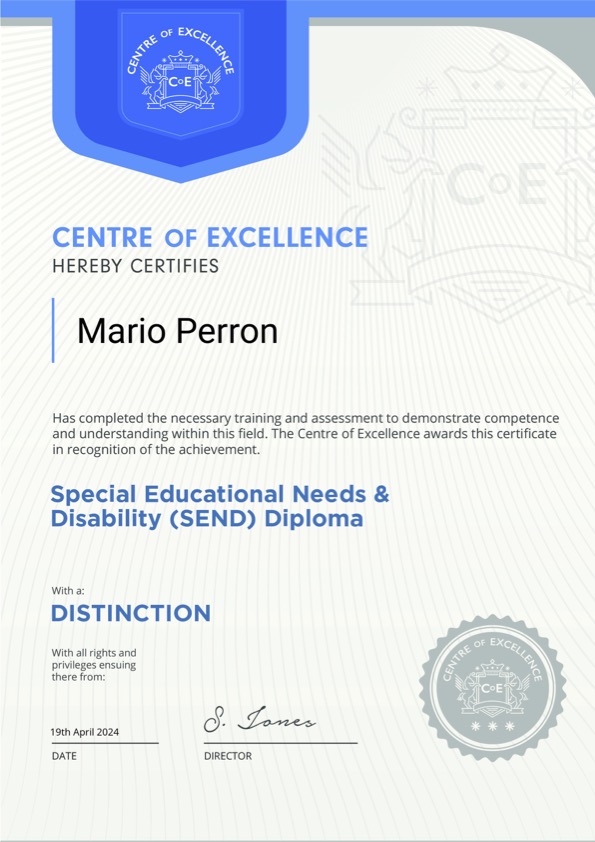As a lifelong learner deeply engaged in the field of education, particularly in the realm of Special Education and Disabilities (SEND), I find myself compelled to underscore the profound benefits inherent in completing a teacher’s professional development diploma focused on this vital area. Such a diploma not only augments one’s pedagogical toolkit but also serves as a catalyst for nurturing empathy and heightening awareness among educators regarding the unique needs of every child, as well as the communicative nature of every behaviour.
Foremost, embarking on this professional journey instills within educators a profound sense of empathy. By delving into the multifaceted world of SEND, teachers are afforded invaluable insights into the lived experiences of students grappling with diverse disabilities. Through nuanced study, instructors become attuned to the challenges and triumphs that punctuate the educational trajectory of these individuals. Such empathetic attunement fosters an inclusive classroom ethos wherein students feel seen, valued, and supported, irrespective of their unique abilities or challenges.
Moreover, the pursuit of a professional diploma in SEND compels educators to confront the fundamental truth that every child is inherently unique in their needs, capacities, and modes of expression. Central to the ethos of inclusive education is the recognition that diversity is not merely a buzzword but a lived reality within the classroom. Armed with this understanding, teachers are empowered to adopt a differentiated approach to instruction, one that honours the individuality of each learner. By embracing diverse learning modalities and tailoring pedagogical strategies to accommodate varied needs, educators cultivate a learning environment wherein every student can thrive and reach their fullest potential.
Crucially, the diploma curriculum underscores the pivotal notion that behaviour is a form of communication. In the realm of SEND, behaviour often serves as a powerful means through which students articulate their needs, emotions, and experiences. Through rigorous study and practical application, teachers gain proficiency in decoding behavioural cues and discerning the underlying messages embedded therein. Armed with this insight, educators are equipped to respond to challenging behaviours with compassion, patience, and strategic intervention rather than punitive measures. In doing so, they create a supportive milieu wherein students feel empowered to express themselves authentically and navigate the complexities of the learning environment with confidence.
In summation, the completion of a teacher’s professional development diploma in Special Education and Disabilities heralds a transformative journey marked by empathy, inclusivity, and a profound appreciation for the diverse tapestry of human experience. By embracing the principles of inclusive education and honing their capacity to decode behavioural communication, educators emerge as stalwart champions of student success, dedicated to fostering an educational landscape wherein every child is celebrated for the unique gifts they bring to the classroom.
Discover more from The New Renaissance Mindset
Subscribe to get the latest posts sent to your email.

